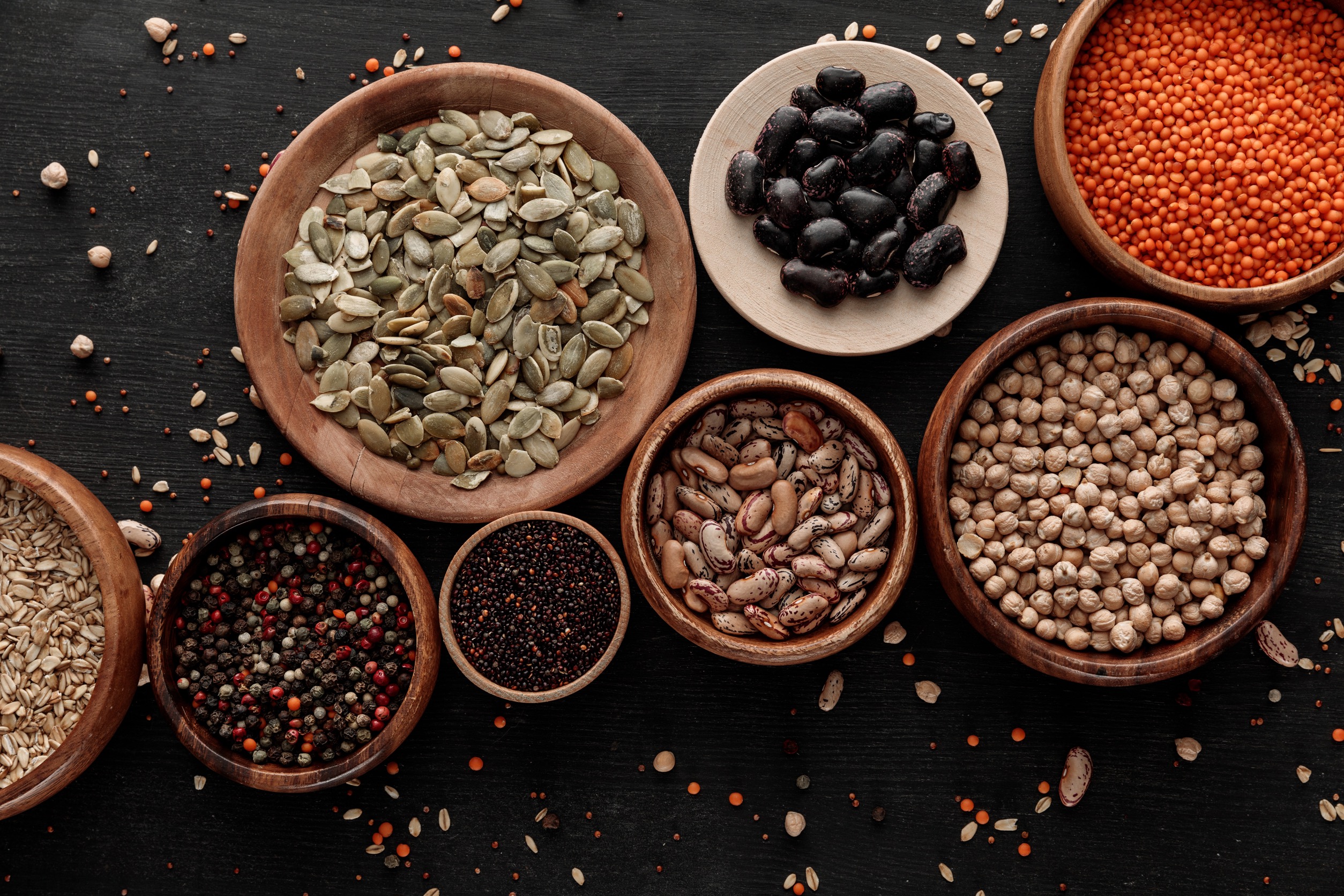by Danielle Crumble Smith
I’ve written before about the health benefits of chia seeds, and there are many, but chia seeds aren’t the only ones that pack a nutritional punch. There are so many seeds that are worth taking a closer look at. How could so much nutrition possibly fit into such a tiny package? Only God knows, but there is no disputing that these miniscule nutritional powerhouses are worthy of a top spot on your grocery list. Lets explore some of my favorites!
Pomegranate Seeds– Pomegranate seeds (aka arils) are quite fun to eat. They look like little red bubbles and burst with flavorful juice in your mouth. They’re an excellent addition to salads and also work well mixed into yogurt. So, what are they good for? Much of their nutritional benefits come from the antioxidant responsible for their red hue: anthocyanin. Anthocyanins are beneficial for health for a variety of reasons. They have been shown to reduce blood clotting, lower cholesterol levels and, when consumed frequently, anthocyanin-rich foods have been associated with lower concentrations of inflammatory chemicals and fewer markers of oxidative stress in the body. Studies have also found that anthocyanins contribute to improved insulin sensitivity (which means better blood sugar levels), lower blood pressure, and decreased risk of heart disease. That’s not all! Pomegranate seeds also contain a polyphenol called ellagic acid, which has been studied for it’s numerous health benefits. These include its potential to improve conditions related to metabolic health including insulin resistance, obesity, nonalcoholic fatter liver disease and atherosclerosis. Even more impressive, ellagic acid has also been studied for its benefits related to the prevention or slowed spread of cancer cells.
Sesame Seeds– These small seeds are traditionally used in Asian dishes. They’re sprinkled on sushi, teriyaki dishes and stir-fry. Sesame oil, extracted from the seeds, provides a distinct flavor to these dishes as well. Both the seeds and the oil have been used for years in Ayurvedic medicine to treat a variety of ailments including anxiety, insomnia and headaches. Those with dairy allergies, or anyone looking to increase calcium intake should give sesame seeds a try! They provide a good source of calcium as well as iron and magnesium. Moreover, the International Journal of Food Sciences and Nutrition published a study showing that consumption of 1.5 tbsp of sesame seeds for 60 days resulted in reduced cholesterol levels. Sesame seed consumption has also been found to reduce blood pressure, blood sugar, and relieve pain associated with arthritis. Another way to get the benefits of sesame seeds is to add tahini to hummus or babaganoush. Tahini is a “butter” made from ground sesame seeds.
Hemp Seeds– Commonly referred to as hemp “hearts,” these little guys provide some serious protein at 10g in a 1-ounce serving. Like animal protein, hemp seeds provide all nine essential amino acids. This makes it an excellent option for vegetarians and vegans looking for a plant-based protein boost. In addition to protein, hemp hearts also provide a good source of Vitamin E , immune-boosting zinc, iron, omega-3 and omega-6 fatty acids. They have a slight nutty flavor and add a nice crunch to salads or oatmeal. They also work well as an addition to smoothies.
Mustard Seeds– Surprisingly, mustard comes from the same family as broccoli, cauliflower, and other cruciferous veggies (Brassica family). These seeds are rarely highlighted on their own because they are usually ground up and turned into mustard but they happen to be the most heavily traded spice, used in a variety of dishes around the word. Did you know that these seeds actually provide 7g of protein in a 1-ounce serving? That’s comparable to a 1-ounce serving of peanuts! Additionally, mustard seeds are a good source of selenium, which is necessary for healthy thyroid function. As their name denotes, mustard seeds definitely taste like mustard. Sprinkle them on a salad or add them to a soup of a nice pop of flavor.
Pumpkin Seeds– Pumpkin seeds, also called pepitas, have become fairly popular. They are showcased in many granola cereals, health bars and trail mixes for good reason! As with hemp seeds, pumpkin seeds also provide heart healthy omega-3 fatty acids. Shelled pumpkin seeds provide 8g of protein per 1-ounce serving. Pumpkin seeds are excellent sources of magnesium and phosphorus and are a good way to increase iron and zinc intake. Magnesium is utilized in over 300 reactions in the body and most people don’t consume enough! Pumpkin seeds are also a good source of tryptophan, which helps promote sleep. Grind them into seed butter and spread on sandwiches, for a nut-free alternative or add them to pumpkin soup for a savory, crunchy twist.
Sunflower Seeds– Sunflower seeds are probably the most common of the bunch. They have become a primary alternative for those with allergies to peanuts and/or tree nuts. They can be ground into a meal or flour and used in place of almond meal in baking dishes. They also provide a nice flavor alternative to pesto. Sunflower seeds are an excellent source of Vitamin E. Vitamin E is necessary for the formation of red blood cells. It also helps prevent blood clots by widening blood vessels and serves as an antioxidant protecting cells from free-radical damage. Sunflower seeds are also good sources of folate, which is necessary for healthy fetal neural tube development in pregnant women. Sunflower seeds are a great snack on their own if you don’t feel like doing anything fancy. Grab a handful and pair with an apple for a satisfying snack.
All of these seeds can be added to just about any dish to enhance the flavor, provide texture variety while also boosting the overall nutrition content. Use them to get out of food ruts and wow your friends and family with your newfound knowledge.
http://www.foodandnutrition.org/July-August-2016/Super-
http://www.medicalnewstoday.com/articles/303864.php
Seeds/https://www.ncbi.nlm.nih.gov/pubmed/27633111












